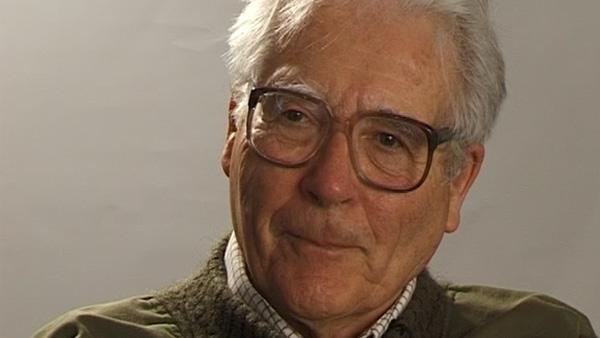NEXT STORY

How I invented the electron capture detector
RELATED STORIES

NEXT STORY

How I invented the electron capture detector
RELATED STORIES


|
Views | Duration | |
|---|---|---|---|
| 1. The box that attracted me to science | 1 | 1012 | 01:37 |
| 2. My scientific education | 2 | 403 | 03:59 |
| 3. The difference between precision and accuracy | 468 | 04:26 | |
| 4. On being a human guinea pig | 1 | 274 | 03:10 |
| 5. How JBS Haldane made his liver fizz | 2 | 644 | 00:42 |
| 6. Health and safety hampers science today | 306 | 01:06 | |
| 7. How I invented the electron capture detector | 428 | 06:10 | |
| 8. What is the meaning of life? | 2 | 526 | 04:12 |
| 9. An invitation from NASA | 3 | 296 | 02:51 |
| 10. Detecting life on Mars | 1 | 344 | 04:20 |

Scientists nowadays are, I think, much hampered by health and safety regulations. These are fine in the workplace to protect work people from dangerous chemicals, radiation and so forth and are a great advance towards the end of this century. But scientists, I think, should be responsible for their own safety. They should know their job and be professionals to a point where they can handle dangerous materials without risk. After all, most of the hazards that scientists confront with, for example radioactive materials or dangerous chemicals are… represent no greater threat to life than driving a car, and we're expected to be able to do that safely, so why not? Especially since it's their job. I feel it's a serious matter that scientists are hampered because much of the work I did in the old days, which has been very useful subsequently, would have been impossible with the restrictions there are today on what a scientist can do.
Born in Britain in 1919, independent scientist and environmentalist James Lovelock has worked for NASA and MI5. Before taking up a Medical Research Council post at the Institute for Medical Research in London, Lovelock studied chemistry at the University of Manchester. In 1948, he obtained a PhD in medicine at the London School of Hygiene and Tropical Medicine, and also conducted research at Yale and Harvard University in the USA. Lovelock invented the electron capture detector, but is perhaps most widely known for proposing the Gaia hypothesis. This ecological theory postulates that the biosphere and the physical components of the Earth form a complex, self-regulating entity that maintains the climatic and biogeochemical conditions on Earth and keep it healthy.
Title: Health and safety hampers science today
Listeners: Christopher Sykes
Christopher Sykes is a London-based television producer and director who has made a number of documentary films for BBC TV, Channel 4 and PBS.
Tags: Health and Safety regulations, dangers, dangerous materials, hazards, chemicals, radioactive materials, threat, responsibility, restrictions
Duration: 1 minute, 7 seconds
Date story recorded: 2001
Date story went live: 21 July 2010